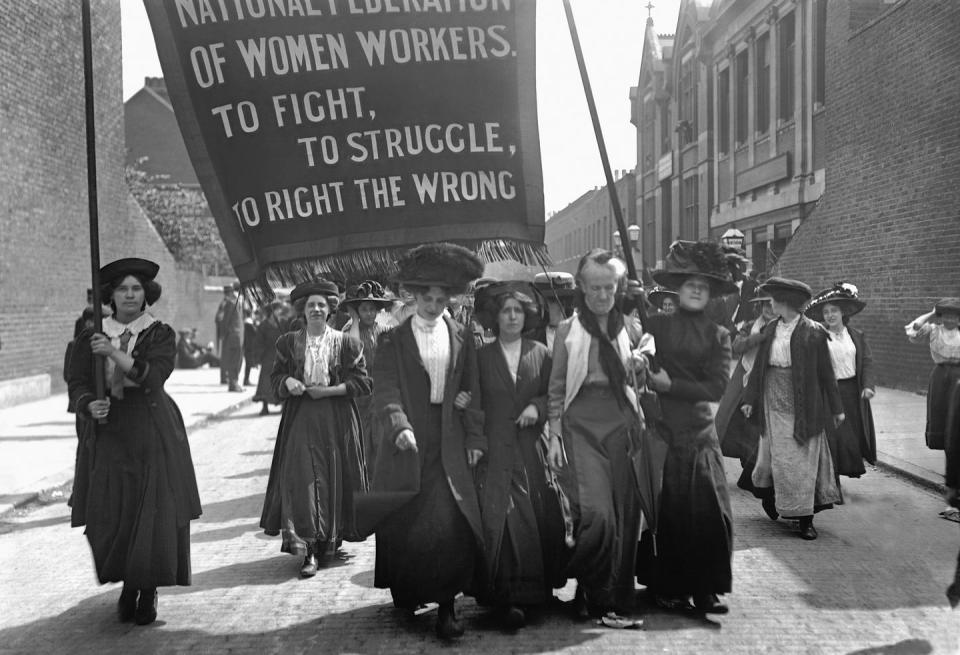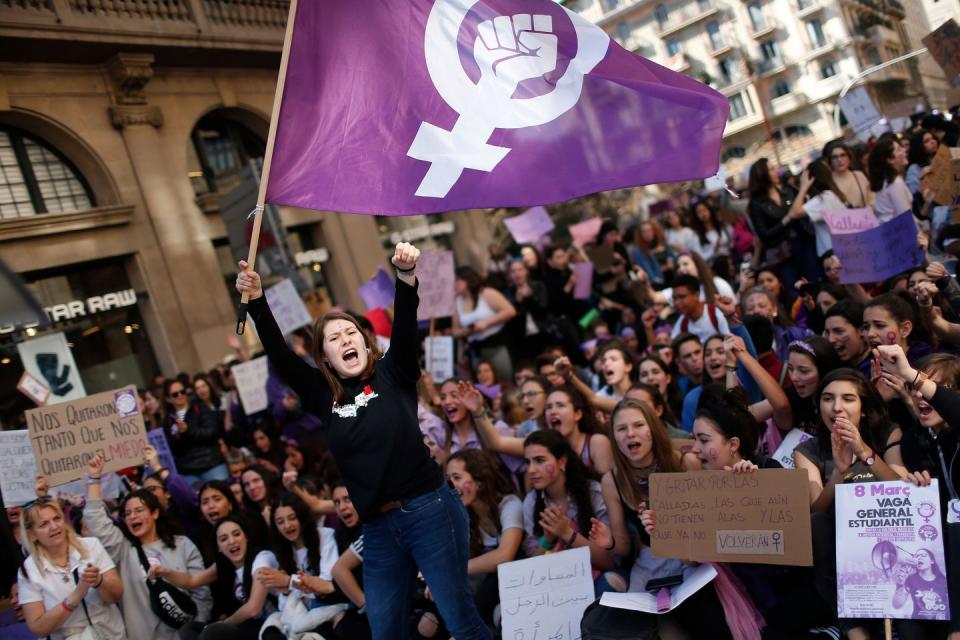Here's Why Women's History Month Is in March
Though the power of women is on our minds 24/7 here at OprahMag.com, (especially keeping in mind our namesake), March is the special time of year where the immeasurable impact women have made on society is commemorated.
From the writers of romance, to the ladies who live out their dream jobs everyday, the celebrities we admire, change-makers, and even our history-making vice president, Women's History Month gives us ample chance to lift them all up. But we also want to take the time to look to the past. One key question? Why is Women's History Month in March and how did it even come to be in the first place? We've answered that (and more) below.
Why is Women's History Month in March?
It all began with one single day in 1908 in New York City when thousands of women united and marched for better labor laws, conditions, and the right to vote. A year later on February 28, in a gathering organized by members of the Socialist Party, suffragists and socialists gathered again in Manhattan for what they called the first International Woman's Day.
The idea swiftly caught on and made its way to Europe. And in March of 1910, according to the BBC, German socialist Clara Zetkin introduced the concept at the International Conference of Women in Copenhagen. The 100 women in attendance, representing 17 countries, all agreed. International Women's Day was then formally honored on March 8, 1911 by Germany, Austria, Denmark, and Switzerland. Russian feminists also had a strong influence on the beginnings of the Russian Revolution, with Communist leader Vladimir Lenin making Women's Day a Soviet Holiday in 1917.

However, due to its connections to socialism and the Soviet Union, Time reports the holiday wasn't largely recognized or celebrated in the U.S. until 1975. That's when—due to its growing popularity—the United Nations officially began sponsoring International Woman's Day on March 8. The UN's General Assembly declared that they aimed "to recognize the fact that securing peace and social progress and the full enjoyment of human rights and fundamental freedoms requires the active participation, equality, and development of women; and to acknowledge the contribution of women to the strengthening of international peace and security."
March is also when Title IX was passed in 1972, which protects people from sex discrimination in federal education programs.
Then, Woman's Day grew from a day to a week.
However, according to the National Women's History Alliance (NWHP), by 1978 a California-based organization (the Education Task Force of the Sonoma County Commission on the Status of Women) became frustrated with the lack of information about women's history available to the public or in grade school curriculum. Branching off of the initial celebration, they initiated the creation of Women's History Week, starting March 8. It was an instant hit.
"Over one hundred community women participated by doing special presentations in classrooms throughout the country and an annual 'Real Woman' Essay Contest drew hundreds of entries," the NWHA website reads.
And a week became a whole month.
In 1979, NWHP member Molly Murphy McGregor was invited to The Women's History Institute at Sarah Lawrence College. After she shared the success of the celebratory week, the national leaders in attendance wanted to bring back a version of Women's History Week to their own communities. Because of the wide ranging interest, efforts began to secure judicial support.
Success came in February 1980 after President Jimmy Carter declared in a Presidential Proclamation that the week of March 8 was officially National Women's History Week. Congressional support soon followed, according to the NWHP.
As a result of its country-wide recognition and continued growth in state schools, government, and organizations, by 1986, 14 states had gone ahead and dubbed March Women's History Month. A year later, this sparked congress to declare the holiday in perpetuity.
Now, let's fast forward to 2021.

The NWHP always declares an annual theme. This year's theme is a continuation of 2020's: Valiant Women of the Vote: Refusing to Be Silenced.
As an example, we can look to civil rights activists of the past like Ida B. Wells, Ella Baker, and Shirley Chisholm, who championed voting rights for women and Black people. Or, we can acknowledge 21st century leaders like Nobel Peace Prize-nominee Stacey Abrams (and the women of Romancing the Runoff who supported her) whose organizing skills helped register at least 800,000 new voters in the state of Georgia, turning it into an essential battleground state during the 2020 election.
"The National Women’s History Alliance is determined that the important roles of multicultural suffragists and voting rights activists continue to be recognized and honored," the organization said. "We refuse to allow their voices to be silenced, even by a pandemic."
For more ways to live your best life plus all things Oprah, sign up for our newsletter!
You Might Also Like

